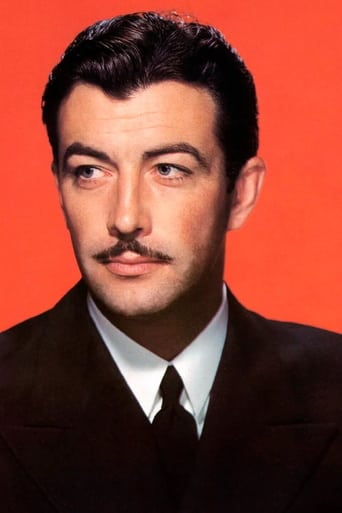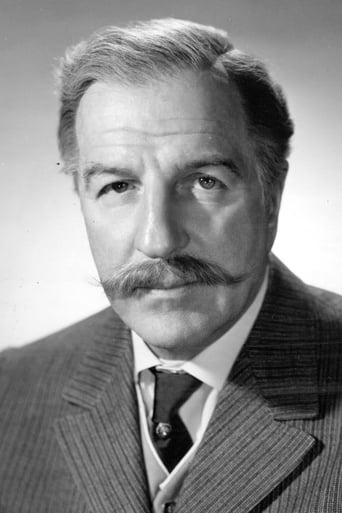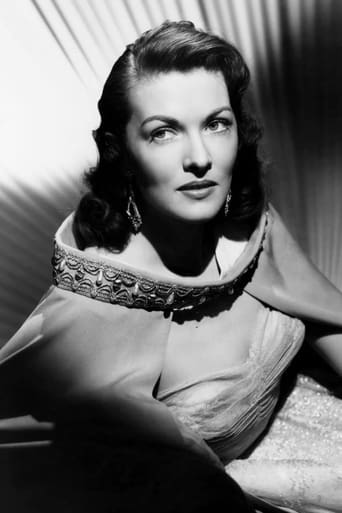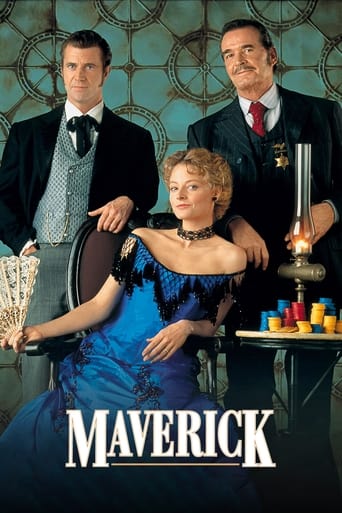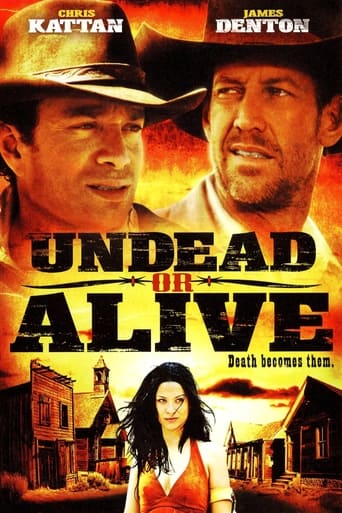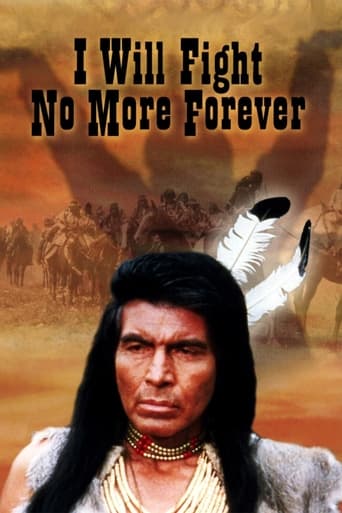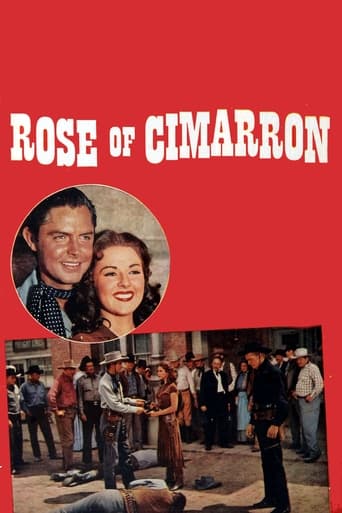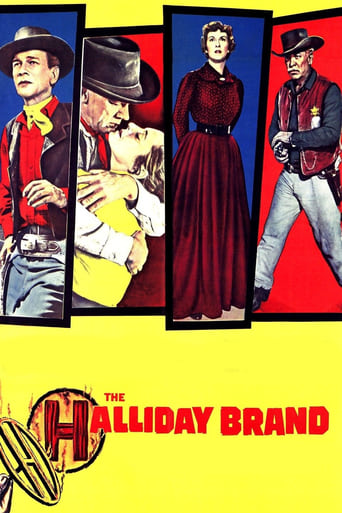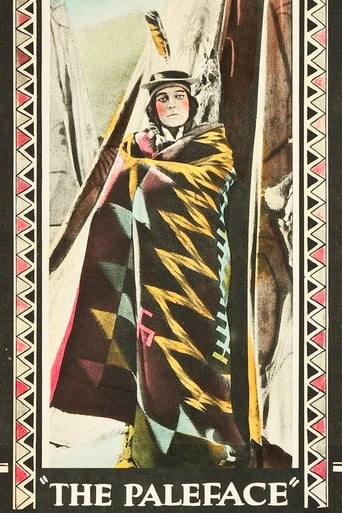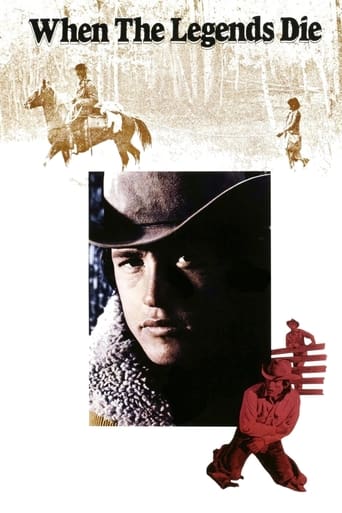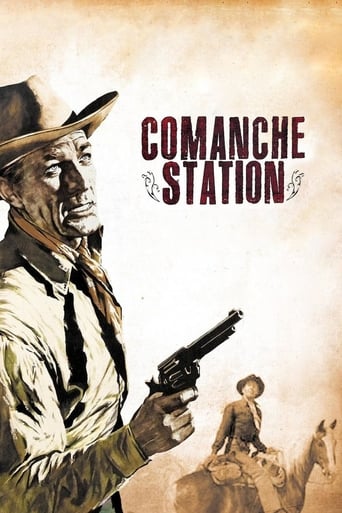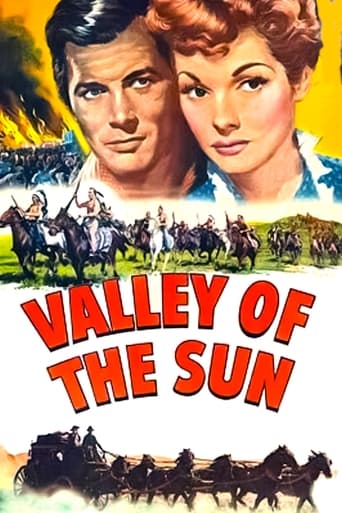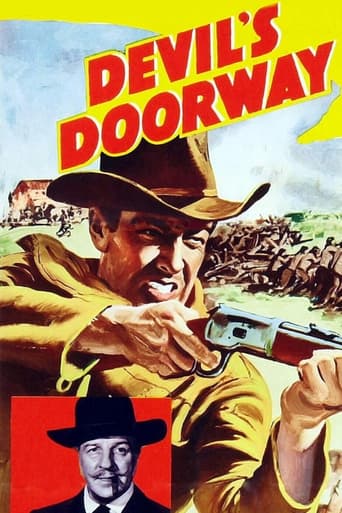
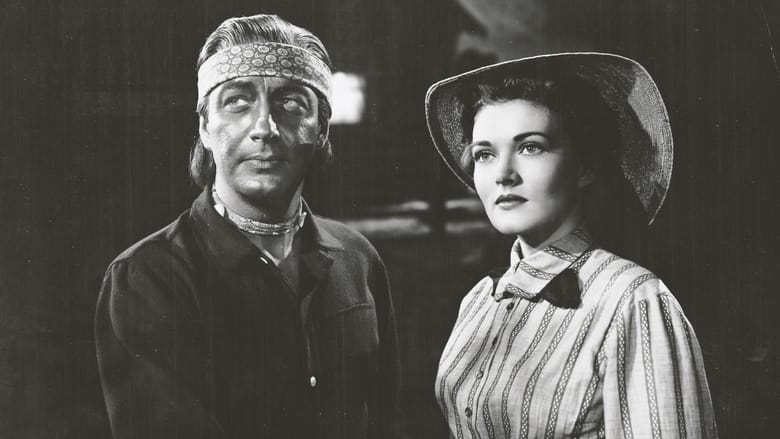
Devil's Doorway (1950)
A Native American Civil War hero returns home to fight for his people.
Watch Trailer
Cast
Similar titles
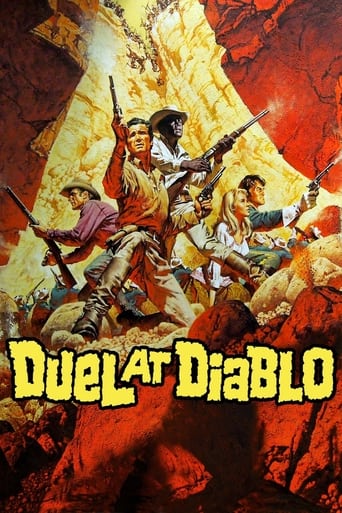
Reviews
Beautiful, moving film.
Absolutely the worst movie.
I really wanted to like this movie. I feel terribly cynical trashing it, and that's why I'm giving it a middling 5. Actually, I'm giving it a 5 because there were some superb performances.
As somebody who had not heard any of this before, it became a curious phenomenon to sit and watch a film and slowly have the realities begin to click into place.
A decorated veteran of the American Civil War who is also a Shoshone Indian returns to Wyoming where he finds significantly more white settlers who are keenly interested in his prime valley land. Robert Taylor may not have been your first choice as the Shoshone. Whatever, because Taylor did a remarkable portrayal of a complex character with allegiances to his Shoshone people as well as the United States, for which he bravely fought to preserve the Union and emancipate the slaves in the Civil War. This film relates his fight for the Shoshone cause as he finds his identity as citizen of the United States stripped from him and thus his legal rights to what was his own land. Directed by Anthony Mann and filmed by Mann's legendary cinematographer John Alton in black and white, this turns out to be a western superior perhaps even to Mann's classic Winchester 73.
I have to show my respect to the American movie industries and the people who had the conscience and courage to openly admitted that the Americans whites did so much atrocious, wicked, cruel and heartless deeds to other races in this countries. first was the American Indians, then the African Americans, then during the WWII, to the Japanese Americans. Don't forget this country is a Christian nation and most of the white people are Christians, yet what this country and the white Christians continuously did unbelievable and unimaginable vicious, monstrous things anytime when an excuse or an opportunity arisen, then they would grab it to by passing a law customized to suit and serve their purpose, change their wrongdoings as legal.This film boldly told us a story about what the white Christians did to the American Indians to rob their land and homesteads from them. Now, the American government admitted their wrongdoings to the Indians and allowed them to have Tax-free Casinos on their limited symbolized lands. What a joke. I kept shaking my head when I watched this film, watched those helpless Indians fought a hopeless battle. I couldn't help thinking: If I were one those Indians, what I could have done? If I were one of those white people, could I still claim I am a Christian?
It is shocking that this movie was able to be green-lighted in the Hollywood of 1950. But is the point of view presented here really sympathetic to the "Indians" or deterministic, as was the 1957 movie Something of Value, which told a similar tale about the Mau Mau rebellion in Kenya. Should one be impressed by the subject matter or appalled that the fate of Native Americans was actually less important to these producers than their prurient fascination with an implied hook-up between Taylor (a red man rocking a page boy wig, his screen test for Ivanhoe) and Paula Raymond (the whitest woman in his world)? Whatever the impetus for the film, the acting is quite affecting all around. But the story is so relentlessly bleak and heartbreaking for a 1950 film, that one might almost imagine it as the retro nightmare of the misanthropic, Lars von Trier. The monstrous unfairness of the stolen land, the inhumane displacement of a very sympathetic group of Native Americans and their eventual annihilation is presented with no sugar coating in a way that has yet to be done for other famous sagas of injustice, such as American Slavery, the Irish potato famine or today's beleaguered Palestinians. There could not be a happy ending to any of these stories and this creative team deserves credit for realizing that about Devil's Doorway.
A dark grim yet gritty movie is probably the best way to describe this fairly forgotten and under appreciated jewel of a western. Produced by Nicholas Nayfack for MGM in 1950 the picture - just like "Winchester 73" and "The Gunfighter" made the same year - marked the coming of age of the American western. DEVIL'S DOORWAY was the first movie which undertook to depict - in graphic terms - the plight of the native American in the west of the 1860s. It was also the first western to be directed by Anthony Mann who alongside John Ford would become the genre's most iconic director with his masterpiece "Winchester 73" and thereafter with his fruitful working relationship with actor James Stewart that would produce some of the finest westerns ever made like "Bend Of The River", "The Far Country" and the brilliant "Naked Spur". Nicely written for the screen by Guy Trosperm DEVIL'S DOORWAY was stunningly photographed in glorious Black & White in Aspen, Colorado by John Alton and was complimented with a splendid atmospheric score - featuring an exciting Indian motif - by Russian composer Daniele Amfitheathrof.With the Congressional Medal of Honour pinned to his Union tunic distinguished Shoshone Indian Sergeant Major Lance Poole (Robert Taylor) returns home from the war between the States to his people in his beautiful valley of Sweet Meadow. He is greeted by his aged and ailing father (Fritz Leiber) ("You are home - you are again an Indian"). But prejudice against the tribe is beginning to take hold in the nearby town instigated and then exacerbated by a shady Indian hating lawyer Verne Coolin (Louis Calhern). Things really come to a head when sheep-men arrive and need to graze their herds on Sweet Meadow but Lance will not allow it and orders them off his property ("This is my land and you're trespassing"). However they are encouraged by Coolin to take the land since the Homestead Act of the period states that it is forbidden for an Indian to own any land. An enraged Lance takes up arms and leads his people against the interlopers (a well executed battle scene). Finally with many deaths on each side the army are sent for to quell the fighting which leads to a tragic finale. Lance settles his score with Coolin before the final shootout with the army which sees him and his braves being killed, his village destroyed and the tribe - what's left of them - being escorted to the reservation.DEVIL'S DOORWAY is a superb western and deserves to be rediscovered. With Mann's earlier noir successes "T Men" (1947) and "Raw Deal" ('48) DEVIL'S DOORWAY contains wonderful noirish moments of outstanding quality such as in the bruising fist fight sequence in the Saloon between Taylor and gunman James Milican with its low angle camera and arresting use of light and shadow and again later for scenes inside the dimly lit Indian shacks. The acting throughout is splendid all round. Taylor arguably gives the performance of his long career in an unusual bit of casting. Eschewing his handsome MGM glamour-boy image (he was Gable's chief rival at the studio) he turns in a powerful and striking portrayal of great depth and substance. His performance as a man who sees his beloved valley being ripped out from under him and his people is heartfelt and sincere. Excellent too is Louis Calhern as the antagonistic racist lawyer. His part not being very far removed from his brilliant shady lawyer in the studio's "Asphalt Jungle" the same year.So here is a powerfully evocative and accomplished movie that was strikingly bold for its time and today remains compelling in its stark presentation. Directed by a man who was on the verge of western movie greatness DEVIL'S DOORWAY is a movie that shouldn't be missed by anyone who cares about the American western. It is a movie that with some reassessment and a little more exposure could easily become one of Hollywood's greatest achievements and perhaps even Mann's real masterpiece. A movie that makes the final and prophetic line in the picture that bit more fitting.......... "IT WOULD BE TOO BAD IF WE SHOULD EVER FORGET".
